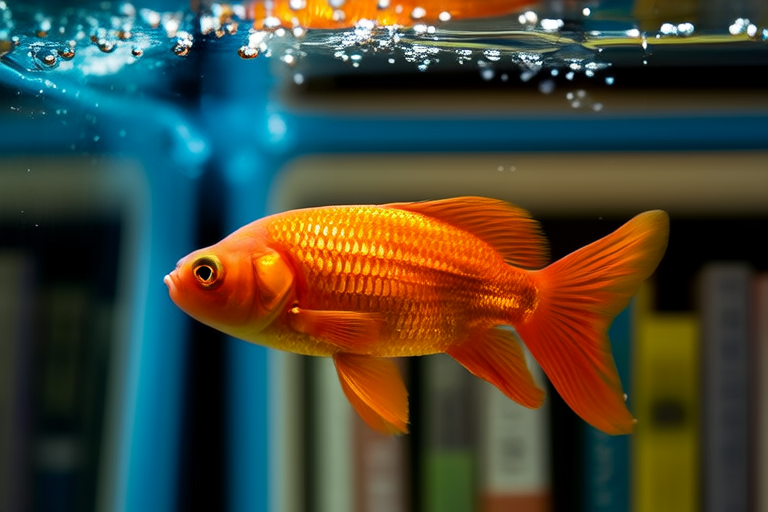The Surprising Lifespan of Goldfish: What Every Owner Should Know
Goldfish are one of the most popular pets worldwide, often seen as simple and easy-to-care-for companions. However, many people harbor a common misconception that these aquatic creatures have a very short lifespan, typically believing they live only a few years. In reality, goldfish can live significantly longer under the right conditions, sometimes reaching ages of over 20 years. This article aims to dispel this myth and provide valuable insights into what every goldfish owner should know about their pet’s lifespan.
Understanding the Common Misconception
The notion that goldfish have a brief lifespan originates from several sources. Firstly, many people purchase goldfish from pet stores where they are often sold in small, unfiltered bowls or tanks. These environments are far from ideal for long-term health. Secondly, misinformation spread through casual conversations or online forums has perpetuated this belief. Lastly, some breeds of goldfish, particularly fancy varieties, are more prone to health issues due to selective breeding, which can lead to shorter lifespans if not properly cared for.
Factors Affecting Goldfish Longevity
Diet
A balanced and nutritious diet is crucial for a goldfish’s health and longevity. Goldfish require a mix of proteins, fats, carbohydrates, vitamins, and minerals. High-quality commercial goldfish food, supplemented with occasional treats like blanched vegetables or daphnia, can help maintain their health. Overfeeding should be avoided as it leads to poor water quality and obesity, both of which can shorten a goldfish’s life.
Tank Size
Goldfish need ample space to thrive. The general rule of thumb is that each inch of goldfish requires at least one gallon of water. Therefore, a single adult goldfish should have at least 20 gallons of water, while multiple fish will require even more space. Larger tanks also allow for better water circulation and filtration, which are essential for maintaining optimal water quality.
Water Quality
Water quality plays a pivotal role in the health and lifespan of goldfish. Regular water changes (about 20-30% weekly) and proper filtration are necessary to remove toxins and waste products. The pH level should be kept between 6.5 and 8.0, and the temperature should ideally range from 68 to 74 degrees Fahrenheit. Using a dechlorinator when changing water ensures the removal of harmful chemicals present in tap water.
Healthcare
Regular monitoring of your goldfish’s health is important. Look out for signs of disease such as lethargy, loss of appetite, bloating, or unusual spots on the body. Early detection and treatment of illnesses can prevent them from becoming severe. Consult a veterinarian specializing in aquatic animals for proper diagnosis and medication if needed. Additionally, maintaining a stress-free environment by avoiding sudden changes in water parameters or aggressive tank mates can promote overall well-being.
Tips for Maximizing Your Goldfish’s Life Expectancy
Creating an optimal living environment for your goldfish involves several steps:
- Provide Proper Housing: Choose an appropriately sized tank based on the number and size of your goldfish.
- Maintain Clean Water: Perform regular water changes and ensure efficient filtration systems.
- Feed Appropriately: Offer a varied diet that meets all nutritional requirements without overfeeding.
- Monitor Health Closely: Keep an eye on your goldfish’s behavior and physical appearance, seeking veterinary assistance when necessary.
- Stimulate Mental Stimulation: Introduce toys or plants to encourage exploration and mental engagement.
Interesting Facts About Goldfish Behavior and Intelligence
Goldfish are not just passive inhabitants of aquariums; they exhibit fascinating behaviors and possess surprising levels of intelligence. They can recognize their owners and respond to specific stimuli. For instance, goldfish can learn to swim through mazes or ring a bell for food. Their memory span is much longer than previously thought—up to three months. Moreover, goldfish communicate with each other through various movements and sounds, adding another layer of complexity to their social interactions.
Understanding these aspects of goldfish behavior not only enhances the bond between owner and pet but also enriches the overall experience of keeping these delightful creatures. By providing stimulating environments and attentive care, you can ensure that your goldfish lives a full and happy life.
